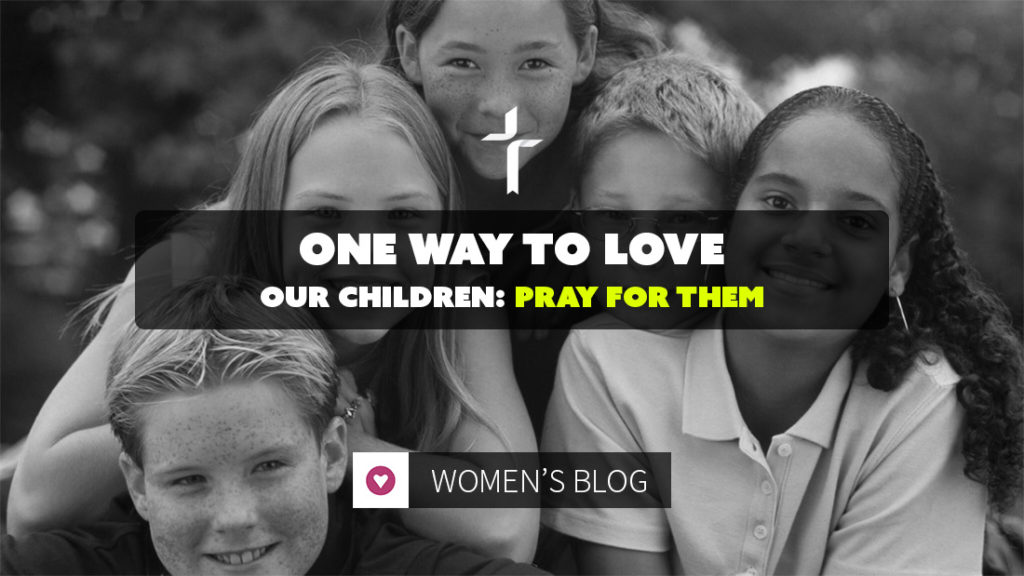In my last two posts we considered how reading the Bible to our children, and teaching them what it means, are two ways in which we can love our children. In this post, I would like to add a third way we can love our children—a way, which is meant to accompany the first two: pray for them.
Our children must first hear of Christ before they can believe in Him, for faith “comes from hearing, and hearing by the word of Christ” (Romans 10:17)—herein lies the importance of reading the Bible to them and teaching them what it means. But knowing God is not something we, or our children, can do on our own.
Knowing God begins at salvation. As the Lord Jesus says in John 17:3, “This is eternal life, that they may know You, the only true God, and Jesus Christ whom You have sent.” And salvation is a work of God. This is why in the gospel of John we read: “But as many as received Him, to them He gave the right to become children of God, even to those who believe in His name, who were born, not of blood nor of the will of the flesh nor of the will of man, but of God” (John 1:12-13).
Salvation is not by the will of the flesh, nor the will of man, but of God. Salvation is by grace alone, through faith alone, in the Lord Jesus Christ alone.
We depend upon God completely for salvation. And once He has saved us, we remain entirely dependent upon Him for our sanctification.
Our Total Spiritual Dependence Upon God
The reality of our total spiritual dependence upon God is taught throughout Scripture. It is something Jesus’ disciples experienced first hand. It is a truth we also experience day to day in our Christian lives. Today, I would like to share one account in the gospel of Mark, which illustrates this dependence.
Mark records how the Lord Jesus, feeds five thousand men with five loaves of bread and two fish. Our Lord takes the five loaves and the two fish, looks up toward heaven, blesses the food, breaks the loaves and keeps giving them to the disciples to set before the people. He also divides up the two fish among them all.
After everyone eats and is satisfied, “they picked up twelve full baskets of the broken pieces, and also of the fish” (Mark 6:43).
Mark 6:44 says, “There were five thousand men who ate the loaves” and then verse 45 says, “Immediately Jesus made His disciples get into the boat and go ahead of Him to the other side to Bethsaida, while He Himself was sending the crowd away”. (Notice the timing: Jesus sends His disciples away in the boat “immediately” after the miracle of the loaves and fish.)
Jesus goes to the mountain to pray while the disciples are crossing the lake. The disciples are working hard to row across the lake because the wind is against them. And Jesus comes to them walking on the water.
“But when they saw Him walking on the sea, they supposed that it was a ghost, and cried out; for they all saw Him and were terrified. But immediately He spoke with them and said to them, ‘Take courage; it is I, do not be afraid.’ Then He got into the boat with them, and the wind stopped” (Mark 6:49-51a).
What is the reaction of the disciples when Jesus gets into the boat? Mark 6:51b says, “they were utterly astonished.” Why are they astonished? Through Mark, God tells us: “for they had not gained any insight from the incident of the loaves, but their heart was hardened” (Mark 6:52).
The disciples distributed the multiplied bread and fish to the crowds. They saw everything that happened. They ate until they were satisfied, along with everyone else. However, “they had not gained any insight from the incident of the loaves, but their heart was hardened” (Mark 6:52).
It is as though they had not seen or experienced what they just had.
Like the disciples, we are totally dependent upon God in every way. We could not exist physically if God did not provide for our physical needs, and we would have no spiritual existence apart from Him either. As the Lord Jesus says, “apart from Me you can do nothing” (John 15:5).
“Nothing,” as in: not a single thing.
Our Dependable God
We depend entirely upon God and, thankfully, He is entirely dependable. The Lord Jesus promises He will never leave us nor forsake us. “The Lord of hosts is with us; The God of Jacob is our stronghold” (Psalm 46:11).
Because “Every good thing given and every perfect gift is from above, coming down from the Father of lights, with whom there is no variation or shifting shadow. In the exercise of His will He brought us forth by the word of truth” (James 1:17-18a), let us go to God in prayer on behalf of our children.
God never changes. He is both good and perfect. He gives good things and perfect gifts. He is the only One who gives spiritual life. He is the only One who produces spiritual fruit. We can go to Him in prayer, in Jesus’ name, and ask for these blessings.
Let us love our children by praying for them — first for their salvation, and then for their growth in “the grace and knowledge of our Lord and Savior Jesus Christ” (2 Peter 3:18).
In Conclusion
Reading the Bible to our children, teaching them what it means, and praying for them are three excellent ways for us to love our children. These three are ours to do. Let us be diligent, and when we fail, avail ourselves of God’s grace, get back up, and start over. Our children need God and His Word, and so do we.


